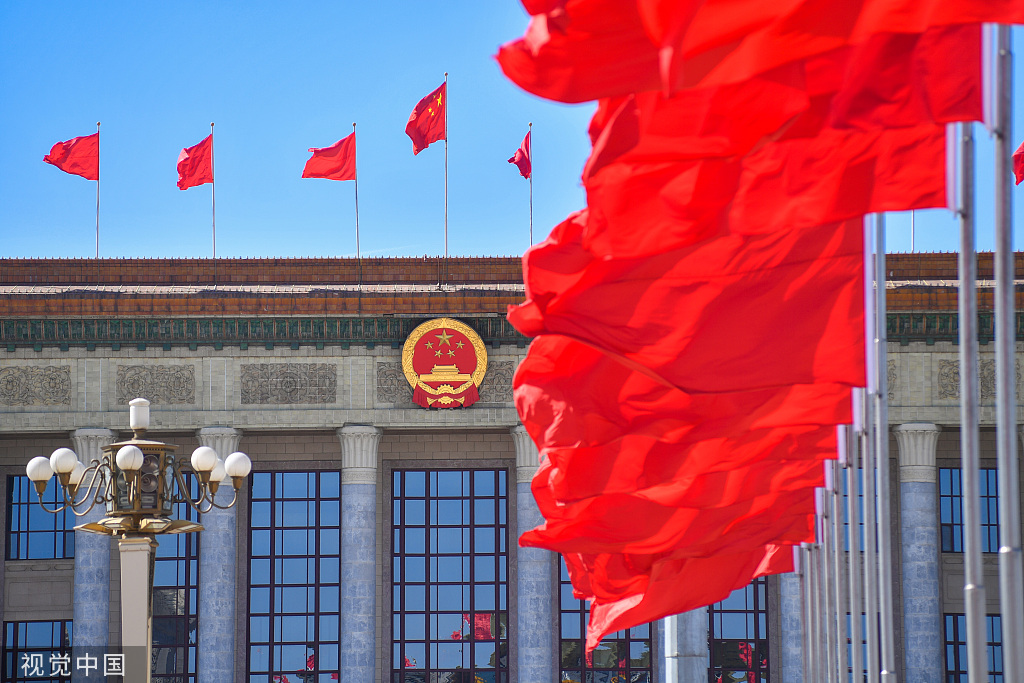Reflections on 70 years of PRC from a global view
- By George N. Tzogopoulos
 0 Comment(s)
0 Comment(s) Print
Print E-mail China.org.cn, September 20, 2019
E-mail China.org.cn, September 20, 2019

This year marks the 70th anniversary of the founding of the People's Republic of China (PRC). Special celebrations and commemorative events, activities and exhibitions have already started up and will continue to intensify until Oct. 1.
What is the significance of this date? The victory of the Communist Party of China (CPC) in the civil war under Chairman Mao Zedong signaled the beginning of the modern era of a country that has admirably preserved a continuous presence through millennia. And while the long past functions as beacon for the modern era, the China's post-1949 history is interwoven into its stable political course. The CPC has been the cornerstone of the country's most recent development.
Politicians and scholars in the West, however, often hesitate to acknowledge the success of the CPC. The ideological rivalry between the United States and the Soviet Union during the Cold War and the supremacy of the U.S. shaped a dominant paradigm in which the liberal world order has become an almost exclusive framework for understanding global politics. Following the aftermath of the collapse of the Soviet Union, this was the natural Western response, yet it fails to take into account the particular characteristics of China as a nation.
The CPC remarkably prompted unity in China for the first time since the end of the imperial era – a unity that had been largely absent from 1912 to 1949. The economic reconstruction following the war against Japanese invaders and the civil war were herculean tasks for a country suffering from poverty and social problems. Then, approximately three decades after the founding of the PRC, Deng Xiaoping introduced his economic philosophy, which laid the foundation for its ongoing phenomenon. Now, decades later, the reform and opening-up process is still being enacted and enriched.
The concept of democracy is not interpreted quite the same in the West as it is in China. Whereas in the former it is associated with features of the political system, in the latter it is linked with the state's empowerment to address domestic challenges more directly.
It was in this way that the PRC survived the turmoil of the end of the Cold War and built a new confidence model with its citizens by continuing its work to reduce poverty and improve living conditions. And the hard work, patience and commitment to national goals certainly yielded results. Beijing's hosting of the 2008 Olympic and Para-Olympic Games demonstrated the national potential pace of growth and projected promising new perspectives.
The importance of China's stability has perhaps become more evident in recent years, what with international uncertainty and populist trends. The country serves as force for globalization and multilateralism and acts responsibly in world economic and political affairs. It is a predictable actor in economic crises, wars and conflicts. China's policies consistently mirror continuity and long-term planning.
So the 70th anniversary of the founding of the PRC rightly finds the country proud of its achievements, such as its progress in innovation and technology, and determined to finish the crucial work of poverty eradication. President Xi Jinping inspires an entire society that realizes the CPC is not tolerant of corruption, that sees the Belt and Road Initiative transforming China into a dynamic player contributing to prosperity around the world, and that feels important changes in everyday life, from health and transportation services to higher wages.
The significance of China's many prior accomplishments generates optimism for the years to come. The unique mix of self-reliance and the infusion of globalization with Chinese characteristics are gradually rendering the world more dependent on China than vice-versa. Its leadership makes decisions that will impact on future generations.
China has successfully stricken a balance between economic growth and challenges such as environmental protection and the technological revolution. It does not wait for a crisis to break out, but acts independently, a priori, taking preventive measures to strengthen its systems on every front.
China's progress and its evolution into an economic and political colossus are irreversible trends. This is not wishful thinking. It is the natural product of national policies put into place within the context of socialism with Chinese characteristics.
As the 70th anniversary on Oct. 1 approaches, it can be seen that the "Chinese Dream" in all its beauty more closely resembles reality than imagination.
George N. Tzogopoulos is a columnist with China.org.cn. For more information please visit:
http://www.ccgp-fushun.com/opinion/GeorgeNTzogopoulos.htm
Opinion articles reflect the views of their authors, not necessarily those of China.org.cn.
If you would like to contribute, please contact us at opinion@china.org.cn.





